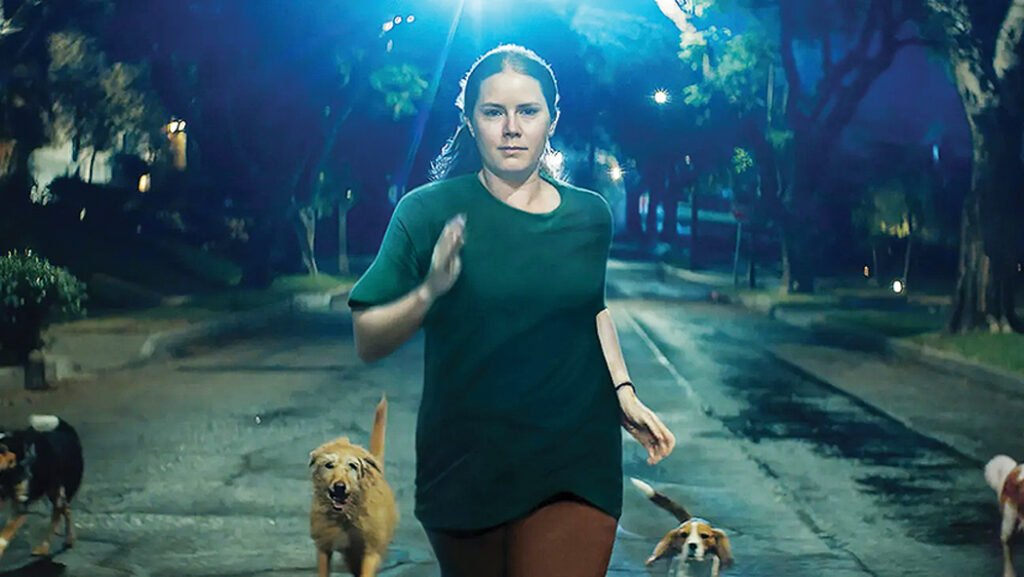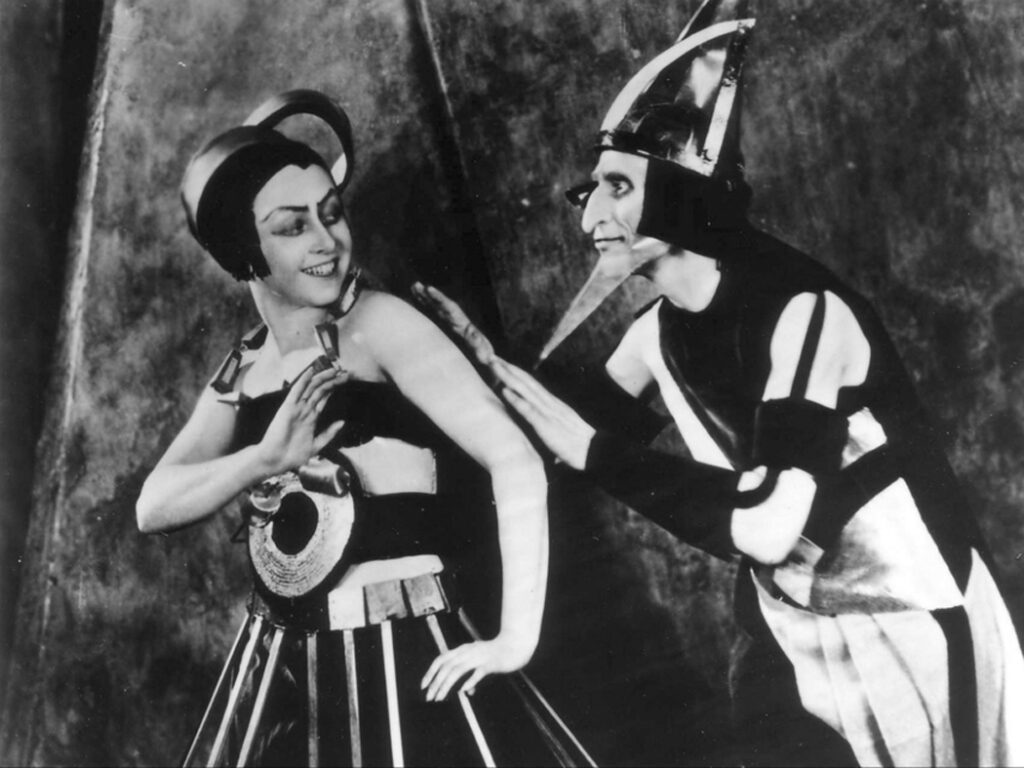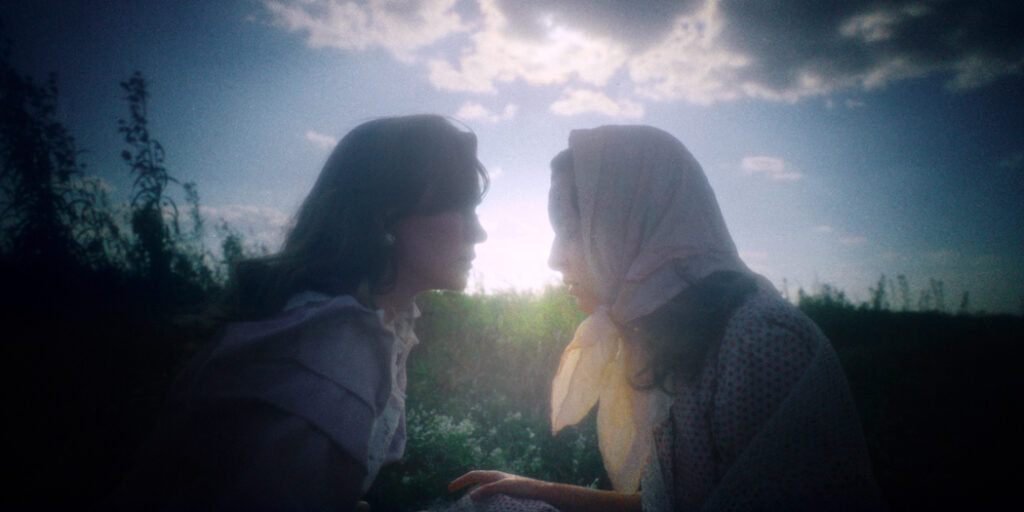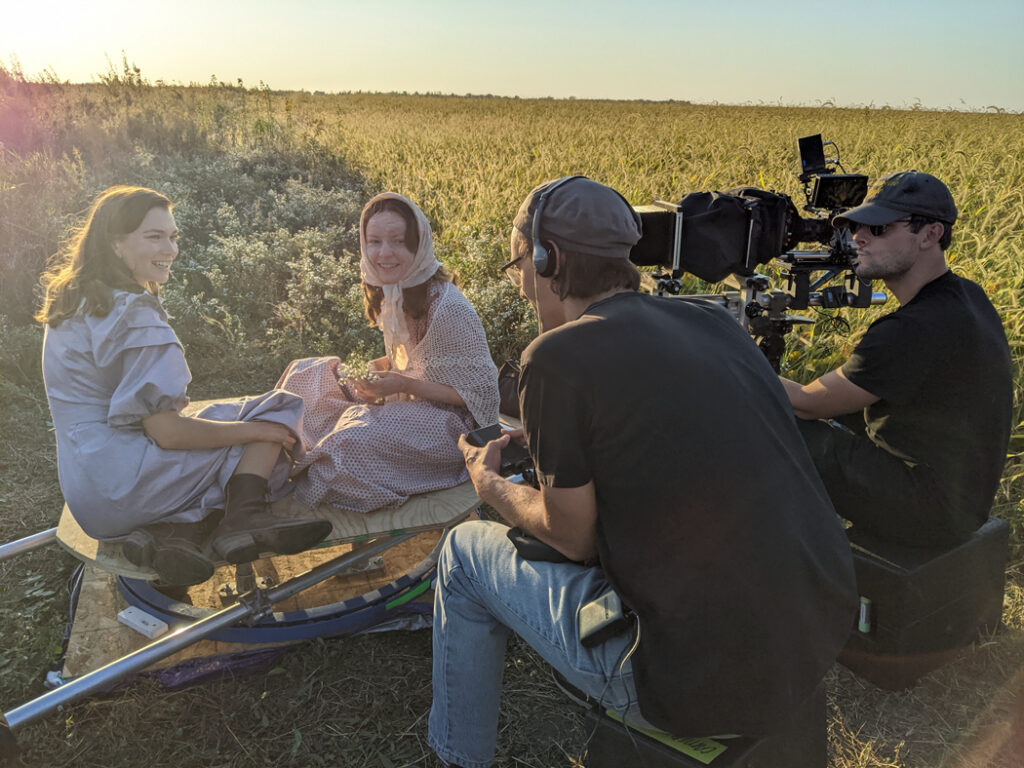
Movie lovers will delight in Iowa City’s third annual Refocus Film Festival, October 17–20, centered on the art of adaptation. The festival features an international roster of over 25 films from all over the world, from early 20th-century films to contemporary masterpieces. The films encompass all genres, from documentaries and biopics to comedies, social commentary, poetic observations, revolutionary politics, coming-of-age stories, sci-fi dystopias, fantastical vignettes, and horror stories. The festival also includes music, art, and dialogues with filmmakers and authors.
The films and events will be held primarily in FilmScene’s five theaters at the Chauncey and on the Ped Mall, with additional programming in Iowa City’s downtown district. Curated alongside the Iowa City Book Festival, Refocus has also organized live local music and multimedia art alongside the screenings to honor the many creative disciplines involved in the experience of film.
Rachel Yoder on Nightbitch
The festival’s headliner movie on Thursday, October 17, is Nightbitch, a magical-realism horror comedy adapted from the novel by Iowa City author Rachel Yoder. Starring Hollywood powerhouse and six-time Oscar nominee Amy Adams, the film was written and directed by Marielle Heller. Adams was so enthusiastic about the book that her production company partnered with Annapurna Pictures to option film rights.

A story of suburban motherhood with an otherworldly edge, Nightbitch follows an unnamed housewife—referred to as “Mother”—who pauses her artistic career to be a stay-at-home mom. As she adjusts to her toddler-centered life, she starts to go through a strange nocturnal transformation, with unnaturally sharp canines, hair growing in weird places, and an aversion to cats.
“The decision to turn the mom into a dog was just an impulse,” says Rachel Yoder. “I didn’t really think about it. Perhaps writing the book was a way of, in a sense, figuring out why the mom turns into a dog. I also wanted it to be unclear if the mom is really turning into a dog or if it’s all in her head. That tension was interesting to me as I wrote, but ultimately I don’t think it really matters which way you read it. I think the inclusion of a supernatural element was reaching toward saying something about both the impossibility and potential of motherhood.”
Yoder was very excited to have her book optioned and is impressed with the film. “One of my greatest hopes for this book is that it would inspire other women to make art,” Yoder says. “I have so much gratitude that Marielle Heller took inspiration from the book to make the movie. No higher honor.”
Yoder says Heller “had a clear vision for what she wanted to do. She shared the script with me a number of times, and we had a few conversations, but the movie is really her creation.” She feels Heller did a great job adapting the story to a new medium. “I think the movie leans into the comedic in a way that the book doesn’t. The book is pretty bonkers and intense at times, so I can see why a filmmaker would want to temper it a bit for wider audiences.”
Aelita: Queen of Mars + Guitar
On Saturday, October 19, guitar virtuoso Marc Ribot will perform his live score to accompany the screening of Aelita: Queen of Mars, a Russian silent sci-fi film that is celebrating its 100th anniversary. Ribot, in addition to having an extensive performing career, has performed music for many acclaimed films, including Jim Jarmusch’s Down By Law and Martin Scorcese’s The Departed.

Aelita is a 1924 space fantasy about a Russian engineer who is mysteriously drawn to Mars to support an uprising led by its queen. Unbeknownst to the engineer, Queen Aelita has been secretly watching him on earth through a telescope. Supporting the film’s melodramatic arc are eye-catching visual elements, striking costumes, and credible world building.
Graham Swon’s An Evening Song
More local representation in the festival’s roster of talented filmmakers includes An Evening Song (for three voices) by Fairfield-based screenwriter Graham Swon. It’s the festival’s first “reverse-adaptation” film, as Swon is currently adapting it into a novel.
Swon, who recently relocated to Iowa from New York and now lives in the family farmhouse his wife grew up in, created a mysterious, fantastical ménage à trois involving a poet named Barbara, her pulp-fiction author husband, and their religious maid. He calls his movie “a trance-like romantic melodrama set in 1939.”

He explains, “I tried to make a picture that could exist somewhere between a classic low-budget Hollywood melodrama and a high modernist novel—something that could hold complex emotional and conceptual ideas within a simple and popular structure. The image and sound are quite ornate, and the film is designed to be seen in a cinema, so if curious viewers are able to make it out to the FilmScene screenings, it is highly recommended.” The films screens on October 18 and 19.
While the characters and plot are completely fictional, Swon was inspired by the life and work of child-prodigy author Barbara Newhall Follett, who mysteriously disappeared in 1939. That galvanized Swon to investigate the concept of extinction.

“First, I was thinking of specific species of plant and animal,” he says, “but I started to think about the idea that an individual can be driven to extinction as well —could have the circumstances that allowed for their existence to be slowly removed from them. The idea of the inability to exist within the framework of a specific ecological or societal set of circumstances dovetailed with my long-term interest in Follett and her writing.”
He finds it unfortunate that Follett is known more for her disappearance than for her writing, so he would be pleased if his film helps more people discover her book, The House Without Windows.
Swon had always thought of An Evening Song as taking place in the imagined past, “an artificial, dreamlike past, with one foot in a historical reality and another in the history of Hollywood cinema.”
Swon is also a photographer, and he and his cinematographer, Barton Cortright, created a digital-analog custom camera to shoot brilliantly colored hazy vignettes. “From the first time I ever used a large-format view camera, I was bedazzled by the images that appeared on the ground glass,” he says. “They are somehow both soft and sharp, colorful and desaturated. There is a magic to them—you can glance up and see the subject you’re focusing on as it is, but the camera allows the subject to transcend reality.” Swon wanted his film to have the same feeling, so he constructed a camera that could capture these qualities while still being usable in the process of making a feature film.
Swon was inspired to adapt his screenplay into a novel, because at screenings people were always asking if the text was adapted from a book, or if he intended to publish the screenplay. “So many of the ideas I tried to bring into the body of this film were literary, and now I am seeing how much cinema I can squeeze into the pages of a novel.”
Swon feels that the constraints of film and literature are almost the opposite. “In cinema, you are limited by time, by money, by the availability of actors, and the position of the sun. In literature, you are limited in that you can only express ideas through the words themselves . . . without the assistance of image, sound, time. So by nature, even if many of the ideas have the same foundation, the result will be a different work.” Swon hopes to have the novel finished by the time the film is available on home video, “so the two pieces might intermingle and interact with each other.”
Passes for the entire festival are on sale now. For tickets and a complete list of films, see RefocusFilmFestival.org.
